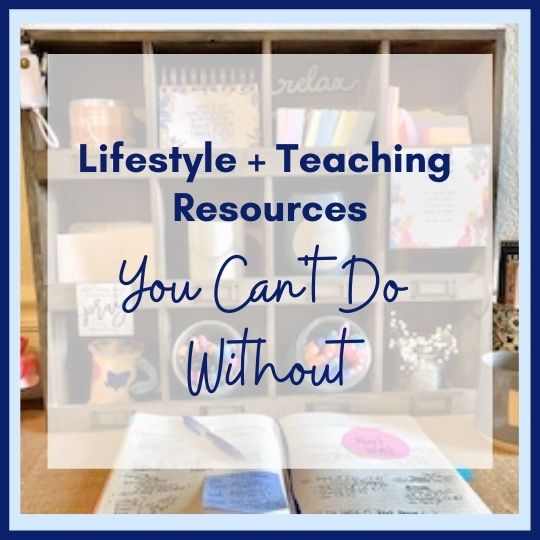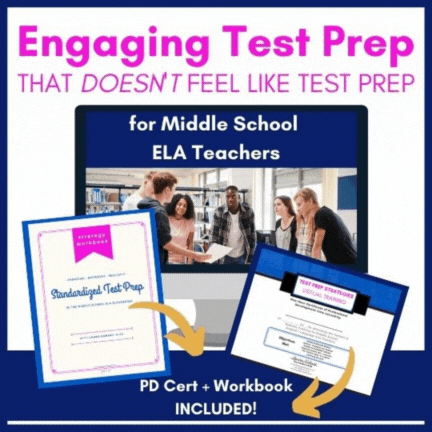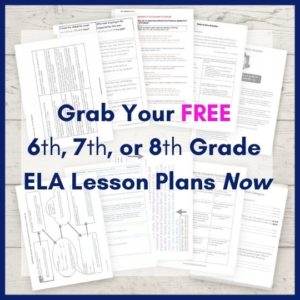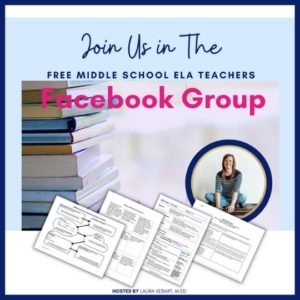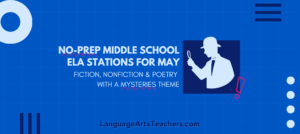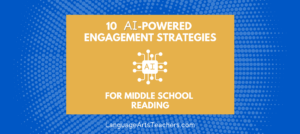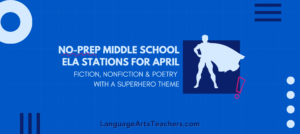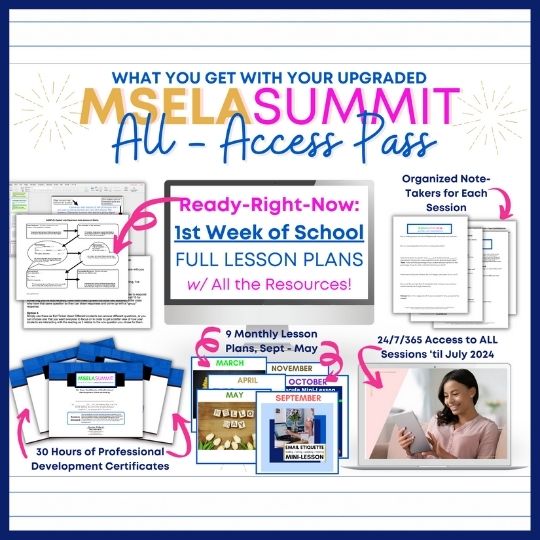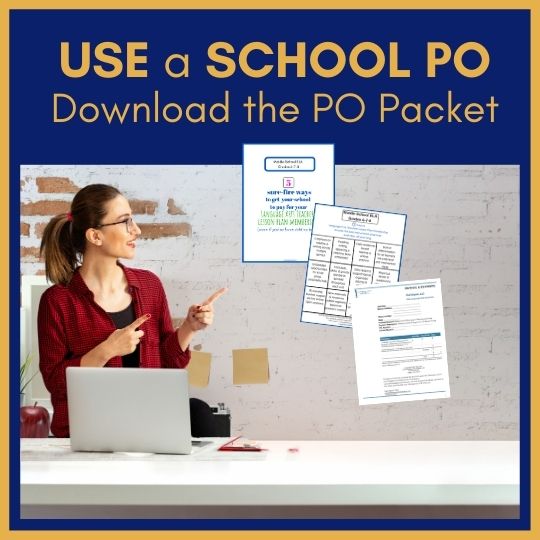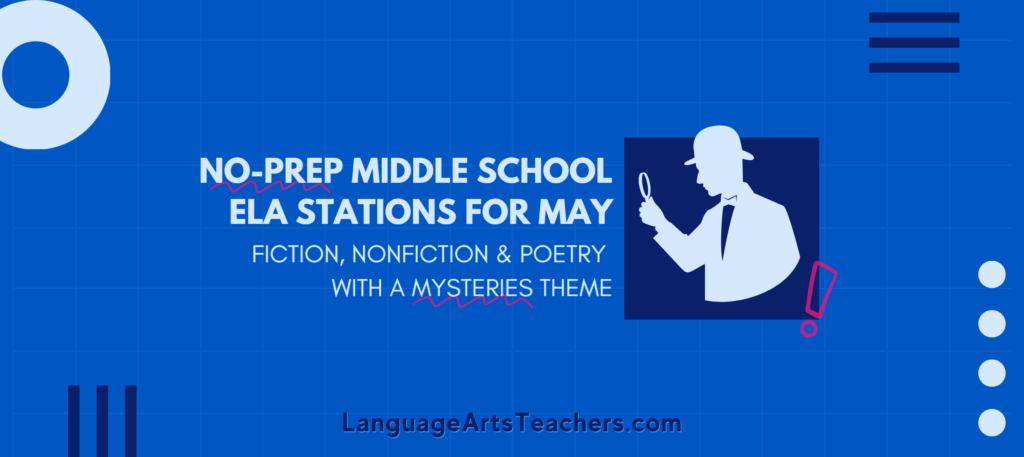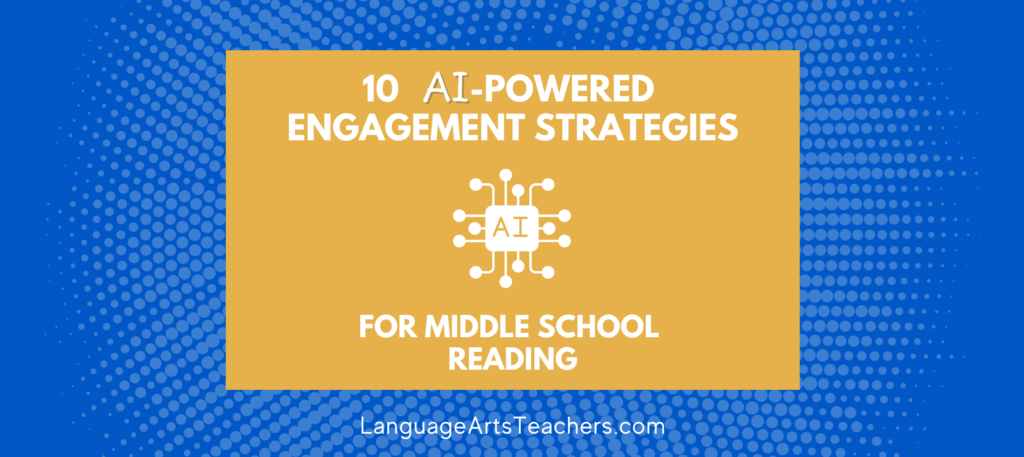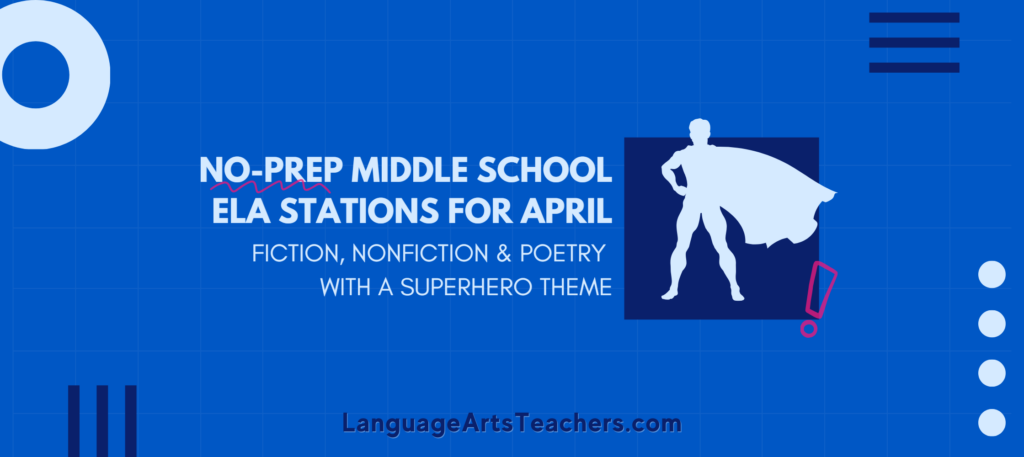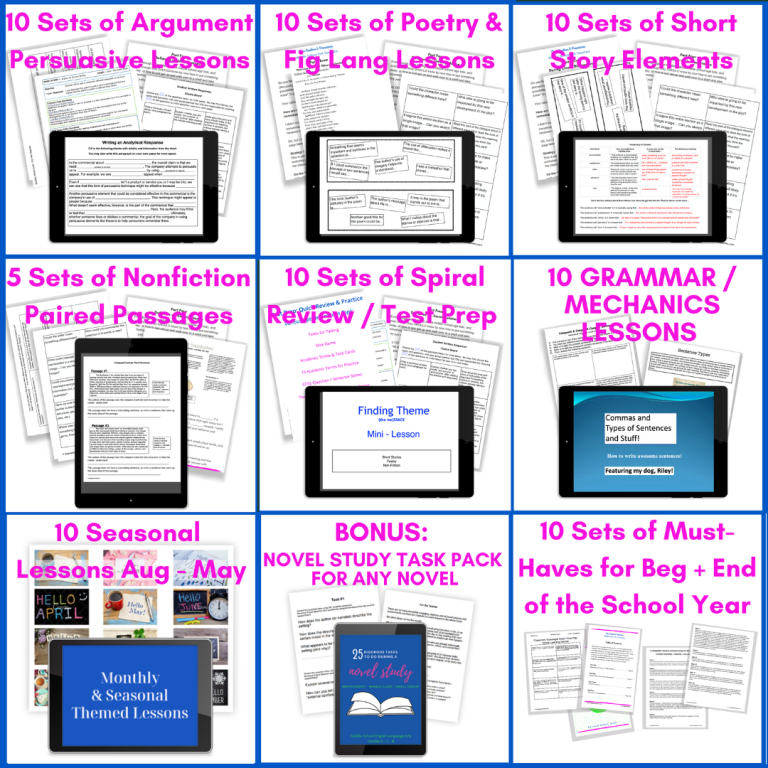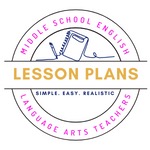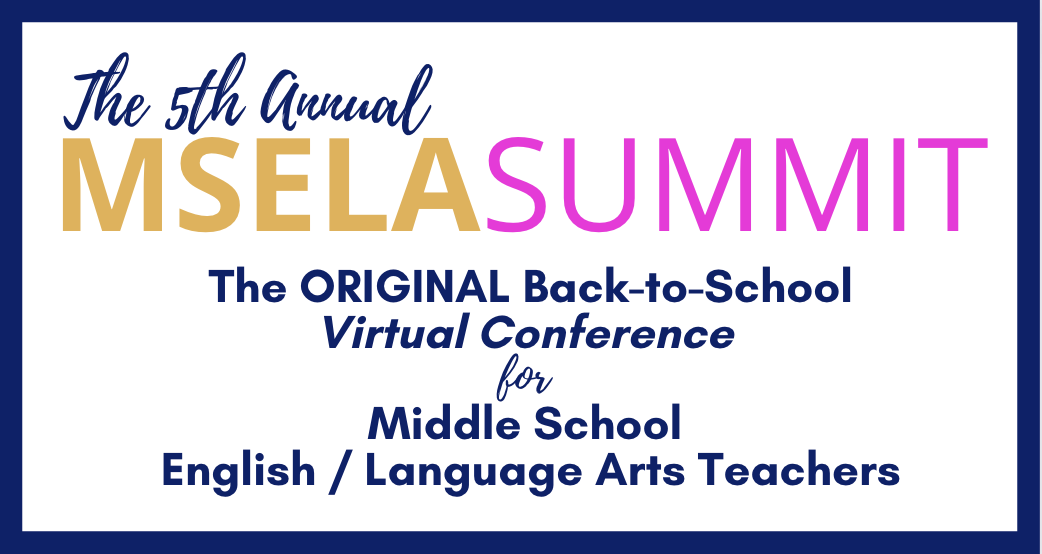I heard one of my students make a comment to her partner that what she completed on the poetry analysis assignment we were working on that day was “good enough” because she “already did that poem last year.”
Yikes.
If I had been standing in another part of the room that day, I wouldn’t have heard the comment at all. Wouldn’t that be easier? To just not even be aware of it?
But how often have your students walked in—looked at the agenda for the day like they’re supposed to—and immediately started telling you (very emphatically of course), that “We already did that last year”?
Or worse — “We did that in like 4th grade!”
Face. Palm. Ugh.
Since when does any particular grade level “own” a piece of literature? Besides, it’s not always WHAT we’re reading, but WHY and WHAT we’re DOING with it that matters at the current grade level.
Besides, it’s not like we hear a song one time and then a week later when we hear it again we get all “Ugh, I already heard that song” lol🤷
Ok, so back to what I decided here on out for the “I already did this last year” comments. . . Specifically, here’s what I offered to provide for one student in particular who actually requested something different regarding a poem we were analyzing in class. See, for her, she was one of my “high-flyers” and she’d already studied that poem in her last school. Plus, her dad bought her a book of poetry that she was reading on her own, and she wanted to keep going with that instead of re-reading the current poem.
So here’s how this played out, and here’s what I recommend for you, too, if you encounter a similar situation:
I told the student that I could offer her a higher-level assignment that would challenge her (because she literally told me she didn’t feel challenged by the current assignment which is why she was fine with “good enough”), but in the back of my mind, I just couldn’t add one more thing to my plate in terms of creating, finding, or inventing a whole new, separate assignment. I thought perhaps using a choice board that allowed this student (and others in the future) to choose the level of assignment or challenge would be a better idea.

Here are the options I discussed with this student, and I later turned them into a choice board that would work with ANY poem going forward:
(1) If she already analyzed the poem last year (totally fine since no one grade level “owns” a poem), then I could have her research and find other poems by the same author and then do a collective analysis of several poems: What they reveal about the author, what themes emerge across the poems, what style or form they have in common, how the poems reflect the history or the stages of life depending on when the poems were written, etc.
(2) Did she like the poem, or did she not like the poem? If she liked it, then maybe she could locate other poems by other writers that are similar in style or theme or historical context. Understanding and analyzing the style of a particular poem in and of itself is super challenging because it requires readers not only to understand the style, but to recognize it when other writers use it, too (as well as WHY they chose that style over some other style… We’re talking about how style impacts meaning—very, very high-level stuff).
(3) I loved that she had a book of poems she was reading on her own, but I couldn’t have her reading it all period long every day. . . So I thought maybe there’s something she could do to leverage her interest there. Back to the various formats or styles of poems— Perhaps I could have her start researching or digging into types or styles of poetry and then creating something useful and informative out of what she discovers. If she’s visual and creative, for instance, then she might enjoy the challenge of creating an infographic that represents her findings.
(4) If there’s a particular topic or theme in some of the poetry from the poem anthology that she likes, then I could challenge her to find other genres outside of poetry that express that topic or theme or subject matter as well. For instance, if she really liked poems about the passage of time, then she could research, locate, and analyze a short story, a non-fiction article, a song, a speech, etc. all about that one aspect that they have in common.
For more insights into organizing your lessons and engaging students in your Middle School ELA Classroom, get your ticket to the MSELA Summit which is the annual virtual conference specifically designed for Middle School ELA Teachers.
Start watching today!


